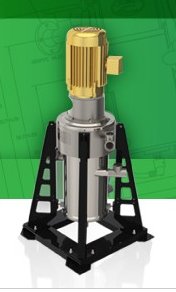Open source and the oilpatch


While we usually think of open source as a development model or a business model, it is also, very much, an attitude. It's a counterweight to the "not invented here" syndrome we find in most of industry.
The oil industry is an example. Oil technology is dominated by a small and shrinking list of companies. All are large bureaucracies. All are attuned to a single mindset on the part of their customers.
As a result, we have learned, oil technology has barely changed in a generation. The same techniques that tried, and failed, to stop an undersea leak 30 years ago are being tried now, only in deeper water. And they're not working.
Liberals want to chalk this up to a lack of investment, a willful blindness to risk. But it's also a form of groupthink, a narrowing of vision caused by a shrinking pool of competitors.
The OTS Model 10 shown, from Kevin Costner's Ocean Therapy Solutions, is a very simple device. It's a centrifuge. A combination of oil and water flows into it, it's thrown by centrifugal force, and this separates the two.
Yet for nearly 20 years Costner has been the oil industry's Flying Dutchman, wandering the world with this solution, unable to land, because no one would even acknowledge the problem. Observers still wonder whether BP is serious about using it or is just engaging in PR by signing a letter of intent with the company,
Part of this had to do with Costner's celebrity, but most had to do with his outsider status. Had Cameron or Halliburton come up with this device, they might have sought changes in maritime law to consider leaked oil salvage, which it in fact is.
We can still make those changes. The BP disaster has uncovered many opportunities for legal and regulatory changes which need to be made. Yet some in the industry are now calling this a "natural disaster." It's not. It's completely man-made.
I don't want to make a political point here. Groupthink can happen in any industry, or in any government. Eyes can be closed to opportunity, the attitude being that if we didn't think of it the idea can't be any good.
People in technology have learned the danger in this attitude.
It may be hard for many readers to conceive of just how wedded to its own ideas IBM was 20 years ago, just how resistant it was to concepts it had not created. The attitude brought the company to the verge of collapse.
Today's IBM is very different. Open source, collaboration, coopitition -- all these concepts have resonance far beyond software.
I began my journalism career in Houston, and I sometimes see that city's industry now as being very much where IBM itself was 20 years ago. IBM needed to be shaken to their core in order to accept the necessity of change. The same is true here.
It's a tiny silver lining in a very dark cloud, but maybe it can grow into something bigger, if it sparks an open source attitude in the oilpatch.